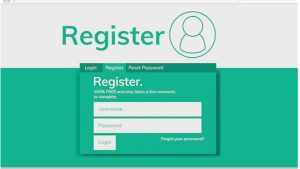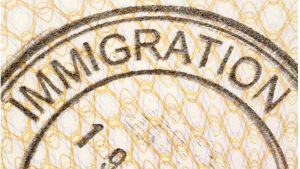How To Work As A Nurse In Canada From Nigeria: If you are from Nigeria and are interested in working as a nurse in Canada, you will need to possess particular certifications and have an in-depth knowledge of the Canadian nursing system.
The first thing you need to do is check that you have the level of education and experience required to fulfill the requirements set out by the Canadian nursing standards. It is possible that you may need to take more classes or get other certifications in order to fulfill the prerequisites set out by the National Nursing Assessment Service (NNAS) and the regulatory authority in the province in which you want to work.
After proving that you have the necessary level of education and certification, the next step is to apply for a work visa or an immigration status that will enable you to lawfully find employment in Canada.
Recommended: Best songs for Workout
Because of this, you could have to submit an application via the immigration system in Canada, which can be a difficult and drawn-out procedure.
You will be able to start searching for nursing employment in Canada after you have gotten the relevant credentials and have your immigration status sorted out. It is essential to do research on the labor market in the province in which you want to work in order to have an understanding of the needs and expectations of employers there. Building relationships and making connections with other people who work in the medical field may also be beneficial while searching for career prospects.
How to Work as a Nurse in Canada From Nigeria
1. Verify Your Credentials: The first thing a nurse who attended school in Nigeria and now wants to work in Canada has to do is have their academic credentials acknowledged so that they can be processed.

This is necessary in order for the nurse to be able to work in Canada. World Education Services is the only agency that has the capability to assess and verify the academic credentials of an overseas student.
2. Get Your Credentials Accessed by NNAS: To Have Your Credentials Assessed by the National Nursing Assessment Service (NNAS), Follow These Steps: After passing the NNAS exam, the next thing you’ll need to do is apply for a Canadian visa and become registered as a nurse in Canada.

It is an essential step in the process of getting your nursing degree recognized in the Canadian healthcare system. If you are able to provide and submit the required documentation, registering with NNAS is a rather simple and uncomplicated process.
The process begins with the establishment of a functioning account, followed by the verification of the account and the submission of essential credentials.
Following the completion of NNAS’s due diligence review of the credentials, you will then be able to move forward with the application process. If you would want your advisory report to be delivered to more than one province, there will be a small fee increase associated with each additional province.
See Also: Types Of Research Methodology
3. Registration/Assessment By the Province Regulatory Body: Once you have obtained a passing grade from NNAS, you are eligible to submit an application to the nursing medical board in the province or territory of your choice in order to become a registered nurse in Canada.

This can be done once you have determined which province or territory you wish to work in. The NNAS score will be used as a measuring stick by all nursing boards in order to compare the nursing knowledge, experience, and education of applicants from across the globe to the criteria established by their respective nursing boards.
A candidate will be urged to enroll in a bridging program or take the province’s final nursing exam, which is necessary for full licensure and registration, in order to go ahead with an application.
Either option is required for full license and registration.
4. Opt for an Immigration Method of your choice: You can take advantage of the many economic immigration programs that are available in Canada at both the federal and provincial levels, such as the Express Entry system, the Provincial Nominee Programs (PNP), and the Skilled Worker program in Quebec, to find employment and eventually obtain permanent residency in the country if you are a Nigerian who has also met the requirements to work as a nurse in Canada.

If you are a Nigerian who has met these requirements, you are eligible to immigrate to Canada as a nurse. If you are a nurse in Nigeria and wish to go to Canada to work there, you will need to create the strongest profile possible.
Even though an express entry profile won’t get you very far, it is a good place to begin building your profile.
Must Read: Top 10 Best Countries To Study Computer Science
5. Wait for the Invitation to Apply through the Express Entry Program: Once you have obtained a passing grade from NNAS, you are eligible to submit an application to the nursing medical board in the province or territory of your choice in order to become a registered nurse in Canada.

Assessors and Regulatory Bodies in the Provinces Once you have obtained a passing grade from NNAS, you are eligible to submit an application. The NNAS score will be used as a measuring stick by all nursing boards in order to compare the nursing knowledge, experience, and education of applicants from across the globe to the criteria established by their respective nursing boards.
At this point, there are often one of two probable outcomes that may occur. A candidate will be urged to enroll in a bridging program or take the province’s final nursing exam, which is necessary for full licensure and registration, in order to go ahead with an application.
Either option is required for full license and registration.
6. How to ensure you will Be Selected to Receive an Invitation: The last step of your immigration to Canada is to wait for an Invitation to Apply via the Express Entry Program.

During this phase of your immigration to Canada, you will get an Invitation to Apply through the Express Entry program. You may still attempt to get traction in the form of a provincial nomination or a job offer even if you are not granted an invitation to apply for the position.
To qualify for this invitation, your Express Entry profile has to be strong enough to win the selection of the federal government, a provincial, or a formal employment offer in Canada.
7. The Procedures to Follow in Order to Get Chosen for an Invitation: The candidates in the Express Entry pool who have accumulated the maximum number of Comprehensive Ranking System (CRS) points are the ones who get an invitation to apply from the CIC.

In the past, the minimum number of CRS points required for a nurse immigration draw to Canada was 449. A job offer is only worth 200 points in Canada, but a provincial nomination certificate is worth an amazing 600 points.
On the Comprehensive Ranking, a score of 1200 is considered to be perfect. If you get your nursing registration in one province, you will immediately be considered qualified to work as a nurse in any other province in that country.
If you are a registered nurse and have an Express Entry CRS score of 449 or higher, you may be able to immigrate to Canada without a job offer or a provincial nomination.
However, if your score is lower, you will require a provincial nomination or a job offer in the nursing profession in Canada in order to come to Canada. If you are a registered nurse who has an Express Entry CRS score of less than 449, you will not be allowed to immigrate to Canada.
Recommended: How to start a wholesale provision store in Nigeria
Conclusion
Conclusively, It is of the utmost importance to do research on and have an understanding of the nursing regulatory organizations and regulations in Canada, in addition to the immigration and visa processes.
When looking for employment opportunities, it can be helpful to network with other healthcare professionals and build connections with those individuals. It is possible for Nigerian nurses to have a successful and satisfying career in Canada if they possess the necessary skills and drive, as well as if they follow the measures outlined above.

Edeh Samuel Chukwuemeka, ACMC, is a lawyer and a certified mediator/conciliator in Nigeria. He is also a developer with knowledge in various programming languages. Samuel is determined to leverage his skills in technology, SEO, and legal practice to revolutionize the legal profession worldwide by creating web and mobile applications that simplify legal research. Sam is also passionate about educating and providing valuable information to people.